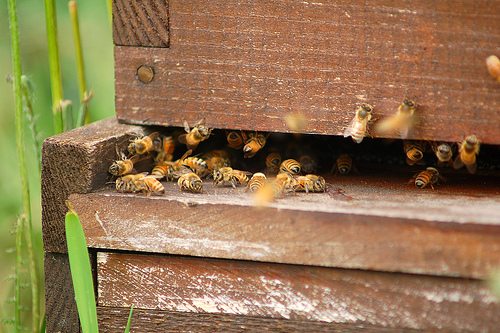

Environment
UK and northern Europe among worst EU regions for honeybee deaths
The UK has one of the highest mortality rates in honeybee colonies in the EU, with 29% dying in the winter of 2012/13, according to a comprehensive study by the European commission.
The study, called Epilobee, analysed 32,000 bee colonies across 17 EU states, for the year 2012 to 2013. It found that the mortality rate in the winter ranged from 3.5% to 33.6%.
The UK lost 29% of its colonies, only lagging behind Belgium, which experienced the worst loss. The UK also performed badly during the summer, when it lost 9.7% of colonies. Only France did worse in this period, with a 14% summer mortality rate.
According to the study, 10% is an acceptable mortality rate and only Greece, Italy and Spain had a levels below that threshold.
The EU commission said that the mortality rate it found was lower than expected and that the winter period was particularly cold.
It added that while higher bee colony mortality rates were evident in some EU countries, “bees are neither disappearing, nor is colony collapse disorder taking place”.
However, the study did not include the observation of other pollinator species, such as wild bees and bumblebees. It also did not include an assessment of pesticides used in the report.
“Scientific data on wild pollinators, including wild bees is scarce, but current indicators show a worrying decline. Preliminary results [of other research] already suggest that wild bees face a serious threat”, the commission said in a statement.
A two-year ban on some pesticides came into force in December last year, after scientists warned that bee colonies were declining fast, causing concern over the pollination of food crops and loss of ecosystem services. The UK was among the member states unsuccessfully voting against the ban.
Photo: Sean Winters via Flickr
Further reading:
Conservationists ‘concerned’ with dragonfly numbers after UK floods
Quarter of European bumblebees face extinction
Government urged to strengthen pollinator strategy to protect bees
Honeybees infection spread to wild bumblebees
Not enough honeybees in the UK to keep up with crop pollination


 Features9 months ago
Features9 months agoWhat is the Eco-Friendliest Option to Wash Your Dishes?

 Environment12 months ago
Environment12 months agoBuilding a Career in Green Construction: Tips and Insights

 News11 months ago
News11 months ago5 Ways Fleet Maintenance Software Can Help Businesses Be More Eco-Friendly

 Features10 months ago
Features10 months agoAddressing Pressing Ethical Concerns with Crypto Exchanges





























